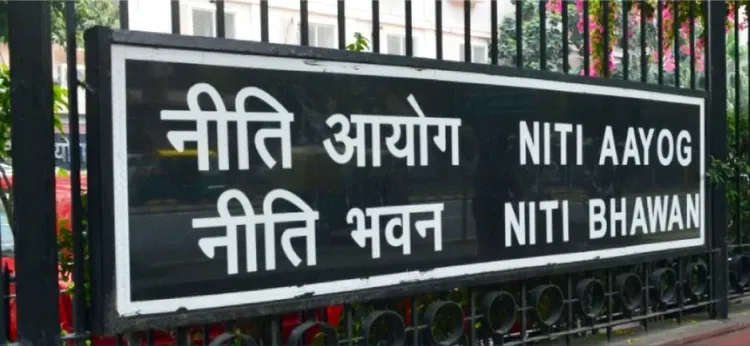Does India Require a Dependable and Scalable AI Infrastructure?

Synopsis
Key Takeaways
- India has a unique opportunity to lead in AI datacentre infrastructure.
- Collaboration among government and industry is crucial.
- Investment in renewable energy will bolster AI capabilities.
- India generates 20% of global data but only holds 3% of datacentre capacity.
- States must focus on creating AI ecosystems rather than just land-based models.
New Delhi, May 8 (NationPress) As the adoption of artificial intelligence (AI) skyrockets across various sectors, the demand for dependable, scalable, and sustainable AI infrastructure in India is more critical than ever, according to NITI Aayog on Thursday.
Recognizing the pivotal role of AI infrastructure in determining India’s economic trajectory, the NITI Aayog 'Frontier Tech Hub' convened a high-level workshop aimed at fast-tracking investments in AI-ready datacentres throughout Indian states.
“India has a unique, once-in-a-lifetime opportunity to establish itself as a global AI datacentre leader. With our leadership in clean energy, unparalleled technological talent, and robust policy framework, we are ideally situated to provide the world’s most environmentally friendly and cost-efficient AI computing solutions,” stated B.V.R. Subrahmanyam, CEO of NITI Aayog.
“Nonetheless, the competition is international. States need to shift their focus from merely considering land to envisioning comprehensive AI ecosystems grounded in energy, innovation, and execution,” he emphasized.
The workshop attracted senior officials from essential state governments, central ministries, and industry leaders to devise a strategic roadmap for positioning India as a global hub for AI infrastructure.
Discussions highlighted the growing disparity between India’s digital aspirations and its existing computing capabilities.
Despite generating nearly 20% of the world’s data, India only holds 3% of the global datacentre capacity.
With the surge in AI adoption across sectors, the necessity for reliable, scalable, and sustainable AI infrastructure cannot be overstated.
The workshop urged states to transition beyond land- and real estate-focused models to a new paradigm centered on access to clean energy, high-performance computing, and favorable policy environments.
Key topics included the anticipated doubling of global electricity demand from datacentres and AI by 2026; India’s unique strengths in renewable energy, deep engineering expertise, and a rapidly expanding digital economy; and the need for synchronized reforms in power, policy, and regulations to attract significant AI investments.
Participants examined six vital pillars necessary for AI datacentre preparedness — land, power, network, compute, talent, and enabling policies.
The discussions underscored the urgency for states to compete not just within India but on a global scale, as countries like Vietnam, UAE, and Indonesia aggressively pursue AI investments.









